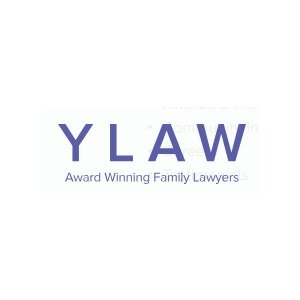Best Oil, Gas & Energy Lawyers in Vancouver
Share your needs with us, get contacted by law firms.
Free. Takes 2 min.
List of the best lawyers in Vancouver, Canada
About Oil, Gas & Energy Law in Vancouver, Canada
The oil, gas, and energy sector in Vancouver, Canada, involves a complex landscape pertaining to extraction, production, distribution, and usage of these resources. The legalities encompass international, federal, and local laws, regulations, and procedures. Regulatory bodies such as the National Energy Board (NEB) and the Canadian Environmental Assessment Agency (CEAA) play vital roles in managing these elements. The laws address various elements like land rights, environmental liabilities, taxation, contractual agreements, royalty payments, and indigenous rights.
Why You May Need a Lawyer
Legal assistance in this sector is often required during drafting and negotiation of contracts, dispute resolution, regulatory compliance, risk management, land acquisitions, and transactions. If you're an energy company, landowner, or an investor dealing with oil, gas, and energy sectors, having a lawyer can help navigate through various legalities and complexities. Other common situations involved include permit applications, environmental assessments, indigenous rights claims, and mitigation of potential legal actions.
Local Laws Overview
In Vancouver, local laws emphasize sustainable development and climate change policies. They incorporate aspects such as environmental protection, territorial development regulations, and clean energy development. Laws such as the Oil and Gas Activities Act (OGAA) and the Greenhouse Gas Industrial Reporting and Control Act (GGIRCA) are crucial to adhere to. Understanding these laws and their implications is critical for individuals or companies involved in oil, gas, and energy sectors.
Frequently Asked Questions
What are the rights and obligations under Vancouver's oil, gas, and energy laws?
Vancouver's laws provide stringent guidelines for businesses and individuals conducting oil, gas, and energy activities, including extraction, distribution, and usage. The obligations include ensuring environmental safety, respecting indigenous territories, compliance towards reporting and maintaining transparency.
What constitutes a breach of oil, gas, and energy contracts?
Non-compliance or violation of any contract clauses, including unauthorized extraction, non-payment of royalties, non-adherence to safety guidelines can constitute a breach.
How are disputes typically resolved in this sector?
Disputes in this sector are often resolved through negotiation, arbitration, regulatory hearings or litigation by engaging services of legal professionals.
Can a lawyer help with application and permitting process?
Yes, lawyers well versed with application and permit processes for oil, gas, and energy projects can provide crucial assistance to ensure compliance with all requirements.
How can Indigenous rights affect my oil, gas, or energy project?
Indigenous rights play a significant role in Canada. Any project needs to respect these rights, failing which it can face stakeholder resistance or legal repercussions.
Additional Resources
Resources like the National Energy Board (NEB), the Canadian Environmental Assessment Agency (CEAA), the Ministry of Energy, Mines and Low Carbon Innovation, and Vancouver's local government websites can provide valuable information and updates. Local law libraries and the Canadian Bar Association also offer useful insights.
Next Steps
If you need legal assistance in Vancouver's oil, gas, and energy sector, start by identifying a lawyer or law firm that specializes in this field. Gather all relevant documents and information relating to your case and schedule a consultation. The lawyer can provide advice based on your specific needs and guide you through the next steps based on your situation.
Lawzana helps you find the best lawyers and law firms in Vancouver through a curated and pre-screened list of qualified legal professionals. Our platform offers rankings and detailed profiles of attorneys and law firms, allowing you to compare based on practice areas, including Oil, Gas & Energy, experience, and client feedback.
Each profile includes a description of the firm's areas of practice, client reviews, team members and partners, year of establishment, spoken languages, office locations, contact information, social media presence, and any published articles or resources. Most firms on our platform speak English and are experienced in both local and international legal matters.
Get a quote from top-rated law firms in Vancouver, Canada — quickly, securely, and without unnecessary hassle.
Disclaimer:
The information provided on this page is for general informational purposes only and does not constitute legal advice. While we strive to ensure the accuracy and relevance of the content, legal information may change over time, and interpretations of the law can vary. You should always consult with a qualified legal professional for advice specific to your situation.
We disclaim all liability for actions taken or not taken based on the content of this page. If you believe any information is incorrect or outdated, please contact us, and we will review and update it where appropriate.










